

Glow Scotland blog
 Glow TV is delighted to announce that two further Chinese New Year events have been added to the schedule. On Monday 30th January at 1.20pm we will be coming live from the Confucius Hub at St Ninian’s High School in East Dunbartonshire with a Chinese New Year Show. Throughout the hour long show you will be entertained by Dragon Dancing, Chinese singing and dancing, Chinese drama and a live singing competition between 6 S1 classes!! Plus much much more. To finish the show the young people will be singing Auld Lang Syne in Mandarin and English. We hope that you can join us - sign up in Glow TV!
Glow TV is delighted to announce that two further Chinese New Year events have been added to the schedule. On Monday 30th January at 1.20pm we will be coming live from the Confucius Hub at St Ninian’s High School in East Dunbartonshire with a Chinese New Year Show. Throughout the hour long show you will be entertained by Dragon Dancing, Chinese singing and dancing, Chinese drama and a live singing competition between 6 S1 classes!! Plus much much more. To finish the show the young people will be singing Auld Lang Syne in Mandarin and English. We hope that you can join us - sign up in Glow TV!
Then on Thursday 2nd February we will be continuing the celebrations with a recorded performance from a group from Shanghai who visited Scotland this week. As part of their brief visit to Scotland for the Chinese New Year a delegation from Shanghai performed in certain Confucius Hubs and also paid a visit to Education Scotland where we were lucky enough to have the event recorded.
The performance is beautiful and colourful and includes singing and dancing as well as Chinese drama. We invite you to join us for a Glow Meet with Fan Lin, LTS Confucius Institute Manager where you can watch the recording of the performance and then ask Fan questions about it and all other things that interest you about Chinese New Year!! Sign up in Glow TV for - Shanghai Delegation Perform Confucius Institute Spring Festival Performance 2012
And don’t forget our King of Masks event on the 6th February from 10.15am and later that day the 龙年大吉 Good luck with the year of dragon - Close of Celebrations events at 2pm!!
More Glow along with LTS Confucius Institute’s Confucius Classroom Hubs celebrate the Chinese New Year of the dragon with a series of events highlighting what is going on in schools across Scotland to mark these exciting celebrations. Beginning on Monday the 23rd January and lasting for 15 days
Glow along with LTS Confucius Institute’s Confucius Classroom Hubs celebrate the Chinese New Year of the dragon with a series of events highlighting what is going on in schools across Scotland to mark these exciting celebrations. Beginning on Monday the 23rd January and lasting for 15 days
Glow will be presenting a programme of different Glow Meets looking at Chinese culture and celebration.
On the 23rd we will be joined by several of the Confucius Classroom Hubs who will be sharing what they have/are intending to do to welcome this new year and we hope that you can join us too and let us know what you are doing in your classrooms across Scotland to mark this event. Even if you do not have anything to share why not join us anyway and find out more about the Year of the Dragon? Sign up and join us on the 23rd January.
On the 6th February we will be continuing the programme with a special event live from the Glasgow Film Festival entitled King of Masks. Through Glow Meet you can watch the live introduction to the film and take part in a workshop with Chinese opera singer and Ricefield workshop leader Fong Liu from St. Ninian’s High School who will be dressed in full Chinese costume. You can also obtain your own free DVD of the film to watch in school that day as well. Find out more about this event and how to get your free DVD in Glow TV.
Finally on the afternoon of the 6th February join us for 龙年大吉 Good luck with the year of dragon - Close of Celebrations. This Glow Meet will be bringing to a close the Chinese New Year celebrations in Glow with a look at the Lantern Festival, a traditional Chinese festival since Han Dynasty more than 2000 years ago. We will have images from the event that took place on 20th January in Fife and also find out more about this from the Confucius Hubs. We also hope to hear from you too and what you have done to celebrate Chinese New Year in your school. Sign up and join us for this event.
You can also find related resources for 2012 - The Chinese Year of the Dragon on the Education Scotland website.
More In this Glow Cookbook we focus on the work of one teacher, Kim Yapp, and how she found that Glow solved a long-standing problem. Kim teaches Modern Foreign Languages. For the last couple of years, the department has run a Culture Project for first year pupils.
In this Glow Cookbook we focus on the work of one teacher, Kim Yapp, and how she found that Glow solved a long-standing problem. Kim teaches Modern Foreign Languages. For the last couple of years, the department has run a Culture Project for first year pupils.
Prior to the arrival of Glow in the school, the project, though very successful, had presented a number of logistical difficulties.
When Kim began to use Glow earlier this year, she was hopeful that it would deliver a simple solution to these logistical problems - and was delighted to find that it did!
A simple Glow Group had provided a way around the logistical barriers, as Kim had hoped, but there were unexpected additional benefits too. As the work was in a shared area from the start of the four periods, it was easy for Kim to monitor progress as the presentations developed and to step in quickly if any pupil was not pulling their weight. The Glow Group also enabled pupils to continue their work at home and to discuss it with their parents and carers.
More Glow TV is our way of bringing the National Glow Meets to you from the one, easy to find, place. Launching for the start of the new term, we have a major schedule of ‘programmes’ planned for the coming session, including, hopefully, a whole series of programmes on topics such as: CfE, SQA, Glow, Glowing Thursdays, World of Work Wednesdays, Creativity, Games Design and Moving Image Education.
Glow TV is our way of bringing the National Glow Meets to you from the one, easy to find, place. Launching for the start of the new term, we have a major schedule of ‘programmes’ planned for the coming session, including, hopefully, a whole series of programmes on topics such as: CfE, SQA, Glow, Glowing Thursdays, World of Work Wednesdays, Creativity, Games Design and Moving Image Education.
This is, of course, in addition to the many exciting events we already broadcast through Glow, such as the author events from the Scottish Book Trust and Edinburgh Book Festival, as well as those hugely popular one-offs like the Dr Who event and the NASA astronauts one, for example. All of these Glow national events will now be accessed through the one central place, Glow TV.
We are now using new software for Glow Meet (Adobe Connect) and this software allows us access to a recording of a Glow Meet, instantly from within Glow. That got us thinking that we could really develop the idea of Glow Meets further and offer a kind of ‘Watch Again’ facility, a bit like the online efforts of the major TV channels. Okay, so we don’t have the equipment or resources that the major TV channels do, but we have created an area in Glow that provides users with a schedule and allows users the opportunity to add programmes to their own, personal, schedule when they sign-up for events.
Signing-up for these events/programmes is easier now, too. Instead of having to complete a sign-up form for every event you want to take part in, all you have to do is register once for Glow TV and then choose your username from a drop-down list whenever you wish to sign-up to a specific event. Easy.
It is hoped that a lot of the programmes we bring you will include live debate/discussion on important topics in Education, as well as many online training programmes.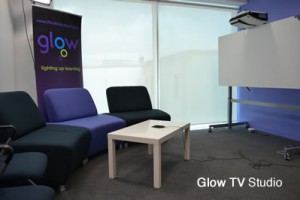 We have managed to procure a little room in Education Scotland’s Optima office in Glasgow and turn it into our very own Glow TV studio, which even has a couch and a coffee table, so that our presenters look like true TV professionals in the making!
We have managed to procure a little room in Education Scotland’s Optima office in Glasgow and turn it into our very own Glow TV studio, which even has a couch and a coffee table, so that our presenters look like true TV professionals in the making!
So, with a whole schedule of programmes you can tailor to your own personal guide, easy sign-up and channel categories to make it easy to find recordings and watch again, Glow TV is a brilliant addition to Glow’s assets. To register for Glow TV and then be able to have your own personal schedule and easy sign-up for programmes, click here.
More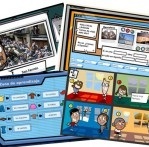 There is now a large amount of Spanish content available on Glow Learn. With around 150 Sonica Spanish activities available this resource is relevant to both primary and secondary pupils. The content is particularly suited to second and third levels.
There is now a large amount of Spanish content available on Glow Learn. With around 150 Sonica Spanish activities available this resource is relevant to both primary and secondary pupils. The content is particularly suited to second and third levels.
The different activities are located in two places within Glow learn – both in the Resources Tab and the Courses Tab. Where you access the activities from will impact on how you can use them and where or not pupils will have access.
To find out more about these exciting activities visit the Glow cookbook
More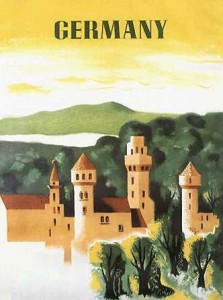 Instead of our usual Glowing Thursdays this week we are going to be hosting a live event from the Royal High School in Edinburgh highlighting the launch of resources developed by the Historical Institute Washington DC and made available through the Goethe-Institut, and Learning and Teaching Scotland to support German History and Culture.
Instead of our usual Glowing Thursdays this week we are going to be hosting a live event from the Royal High School in Edinburgh highlighting the launch of resources developed by the Historical Institute Washington DC and made available through the Goethe-Institut, and Learning and Teaching Scotland to support German History and Culture.
These resources have been selected by the German Historical Institute. They represent a comprehensive collection of original historical sources documenting German history from the Middle Ages to the present day, with particular focus on the period since 1945 to the crumbling of the Berlin Wall during the summer of 1989 and reunification. Within this period, East and West German examples are supplied in order to highlight their similarities and differences. The purpose of these resources is to encourage learners to exercise their intellectual curiosity, ideas and arguments about key issues relating to German history. They also attempt to present an awareness of events and developments, starting with international and domestic politics and extending to economic, social, and cultural issues. Developing cultural awareness is very important in attracting our young people to learning a modern language.
Many of the sources in this selection are difficult to locate in print publications, especially outside of Germany. All of the German language documents are accompanied by contemporary English translations, some of which were commissioned for this project. These resources also provide access to a range of significant visual images, many of which will be unfamiliar outside of Germany.
This part of the launch is aimed at the online audience consisting of teachers of history and German language and will include German Consul Herr Moessinger introducing the resource and there will be a live input via Glow from Dr. Kelly McCullough, Head of the project “German History in Documents and Images”, from the Historical Institute Washington DC.
So why not sign up and join us live at 3.40pm - 4.15pm to listen to Dr McCullough live from Washington DC and Herr Moessinger in the National Modern Languages Glow Group.
Please note that we will be using the new Glow Meet webpart for this event. It is much easier to access and it works in a similar way to the usual Glow Meet so why not give it a go?!
More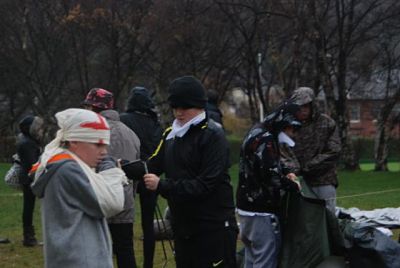
On the final day of State of Emergency, S2 year groups from all seven schools came together via Glow Meet to share their learning experiences from this intensive week of activity.
Tarbert Academy journalists gave a live report on the conflict as news broke in the west of Scotland. Their broadcast was interrupted when freedom fighters broke into the newsroom in protest against the government regime.
A Bathgate Academy human rights campaigner gave a powerful speech about the importance of integrity and trust.
During the week, Lochend Secondary pupils had explored war poetry in English and code breaking in Maths. In Drama they’d made a film about a boy who wanted to join the army and in PE they’d learned what it might feel like to be in the army as they were made to run outside in the cold!
Clyde Valley High had a visit from the Red Cross and found out about refugee camps; they created Facebook pages and video messages for viral communications; they made images of war by acting out and photographing scenes involving rebels, civilians and government soldiers.
The Army marched into Cumnock Academy hall and set up an assault course – the highlight of the week for the reporters:
“It was amazing, great fun – I didn’t come first but I did enjoy it!”
“It helped build my confidence”.
They also had visits from the Red Cross and a Human Rights lawyer and learned that everyone has rights to equality and protection. Pupils had purified water in Science, and designed and built devices to transport black market goods through underground tunnels in Technology and Art.
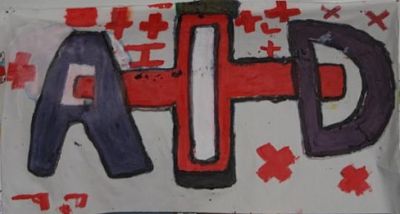
At Greenock Academy aid workers had training in basic first aid and learned to cook nutritious meals with limited supplies. The army launched a search for a missing soldier and through constructing a refugee camp, they learned team work, how to filter water, make up ration packs and distribute food to refugees.
Holy Cross High reported that propaganda was rife, with posters put up around the school by both factions; normal lines of communications had been destroyed. The Department of PE had transformed soldiers into ‘lean, mean fighting machines’ in Sniper Alley; the Department of Technology investigated ways of disposing of human waste; the Department of Social Studies researched the causes of conflict, whilst the Department of Drama explored the motivations of those involved.
State of Emergency has clearly been an amazing experience for both pupils and staff. I would encourage you to visit the Glow Group to read pupil diaries about their learning, look at more photographs of cross-curricular activities and see the rich variety of resources shared by participating teachers. This really has been Curriculum for Excellence in action.
Co-Create is funded through a partnership between Learning and Teaching Scotland and the Creative Scotland National Lottery Fund.
Image credit: Kath Morley, Greenock Academy
MoreThis project is so rich that it is impossible to fully reflect the depth and breadth of the activities and learning taking place in seven secondary schools across Scotland.
Today I went out to visit Cumnock Academy in East Ayrshire where staff have embraced the project and as well as designing an exciting timetable of activities for S2, have created opportunities for other pupils, such as the higher media studies students who are recording and reporting on the week’s activities, and the S6 pupils who are helping S2 build emergency shelters.
I arrived in time to join pupils in the hall to watch the fourth and final webisode. They were totally engaged and focused as the drama reached its sad and shocking conclusion. The atmosphere was palpable as pupils silently started to take in and make sense of what they’d seen.
The online dramas have provided the stimulus for the week’s activities and have generated deep discussion and raised big questions. Some of the pupils later engaged in a conversation with a group at Tarbert Academy via Glow Meet and had a serious debate about the motives behind different characters’ actions. Would they have stolen food if they were freedom fighters? Did they think being an insurgent would put their family in danger?
Yesterday, a Human Rights Lawyer visited the school as an expert witness. He was surprised by the pupils’ depth of knowledge, their insight into conflict situations and the challenging nature of their questions.
Participants have explored the physical, ethical and political issues and challenges thrown up by conflict and they have seen the relevance and connectivity of learning across the curriculum. The project has provided a stimulus for learning and a platform for creative response. The impact of State of Emergency looks set to be long lasting.
Co-Create is funded through a partnership between Learning and Teaching Scotland and the Creative Scotland National Lottery Fund.
Image credit: Eoghann MacColl, Cumnock Academy
More
“This is an act of peace not war”, the politician announces in a TV news broadcast as government troops are mobilised for Operation Democracy – “the aim, to disable the unelected regime and restore democracy”. The reality for State of Emergency narrator Chloe is chilling – she is able to watch military strikes online whilst her own building shakes.
So began day three of State of Emergency, an intensive week for S2 pupils in seven schools, exploring the dilemmas and complexities of war, supported by Visible Fictions Theatre Company, and using a project Glow Group to share information, ideas and resources.
At Greenock Academy, staff and pupils have been living out a conflict, using role play to explore issues faced by refugees, soldiers, journalists and politicians.
“We don’t belong anywhere and we can’t trust anyone. We don’t want to fight, we just want to go home.” S2 ‘Refugee’ Pupil to Journalists, Greenock Academy
Clyde Valley High mathematics pupils were faced with the challenge of constructing new bridges to transport supplies over the Clyde after a bombing raid had destroyed the existing ones. They also learned how to make and break codes.
With the threat of shortages caused by the conflict, home economics pupils investigated what food supplies would be needed and where to locate them. At Bathgate Academy, the dining staff are involved too – their State of Emergency lunch time menu includes a ‘No deliveries’ day, with store cupboard ingredients only, and ‘No power or cooking facilities’ day when only cold food will be available.
“Its exciting, really different from normal school” S2 Pupil, Clyde Valley High
“We could have done a whole month on this”. Teacher, Lochend Secondary
Co-Create is funded through a partnership between Learning and Teaching Scotland and the Creative Scotland National Lottery Fund.
Image credit: Julie Austin, Lochend Secondary
More
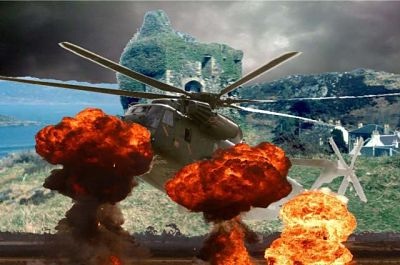
“The first victim of war is the truth”, The journalist’s view – Greenock Academy
Day two of the project and the second State of Emergency webisode starts to bring home some of the realities and complexities of war. What would it be like to live in a war zone?
Pupils and teachers have been engaged in challenging and thought provoking discussions…….What are the differences between needs and wants? Which version of a story is the truth? What is it like to live in a refugee camp? Who is right – the government or the freedom fighter?
Each school involved in the project is using conflict as the focus for learning and teaching, exploring war from both subject specific and interdisciplinary perspectives. Pupils at Tarbert Academy have created their own images of what war might look like for them; Clyde Valley High have been discussing war art and the deeper meanings hidden within it. At Bathgate Academy, pupils are working in groups to write their own blogs or online diaries about their learning experiences. At Greenock Academy, the resource centre has been converted into a field hospital and physical borderlines have been created in the school.
One thing is certain– this week is providing many participants with a completely new experience and way of working that is all engaging.
“Day one is over. Two webisodes down and not a technology disaster in sight! Now I know why we say “lines of communication”, how fast soup can be cooked (or not). The young people are engrossed in the fight for freedom. Can’t wait for Sniper Alley tomorrow….” Teacher, Holy Cross High
Male pupil: Miss, see in maths- are we gonnae dae that State of Emergency thing tae? Maths teacher: Yes we are Male pupil: Yabby dabby dabby do! Conversation, Lochend Secondary
For an overview of the project read the recent TES article and visit the State of Emergency Glow Group.
Co-Create is funded through a partnership between Learning and Teaching Scotland and the Creative Scotland National Lottery Fund.
Image credit: Pupil, Tarbert Academy
More
Find us on